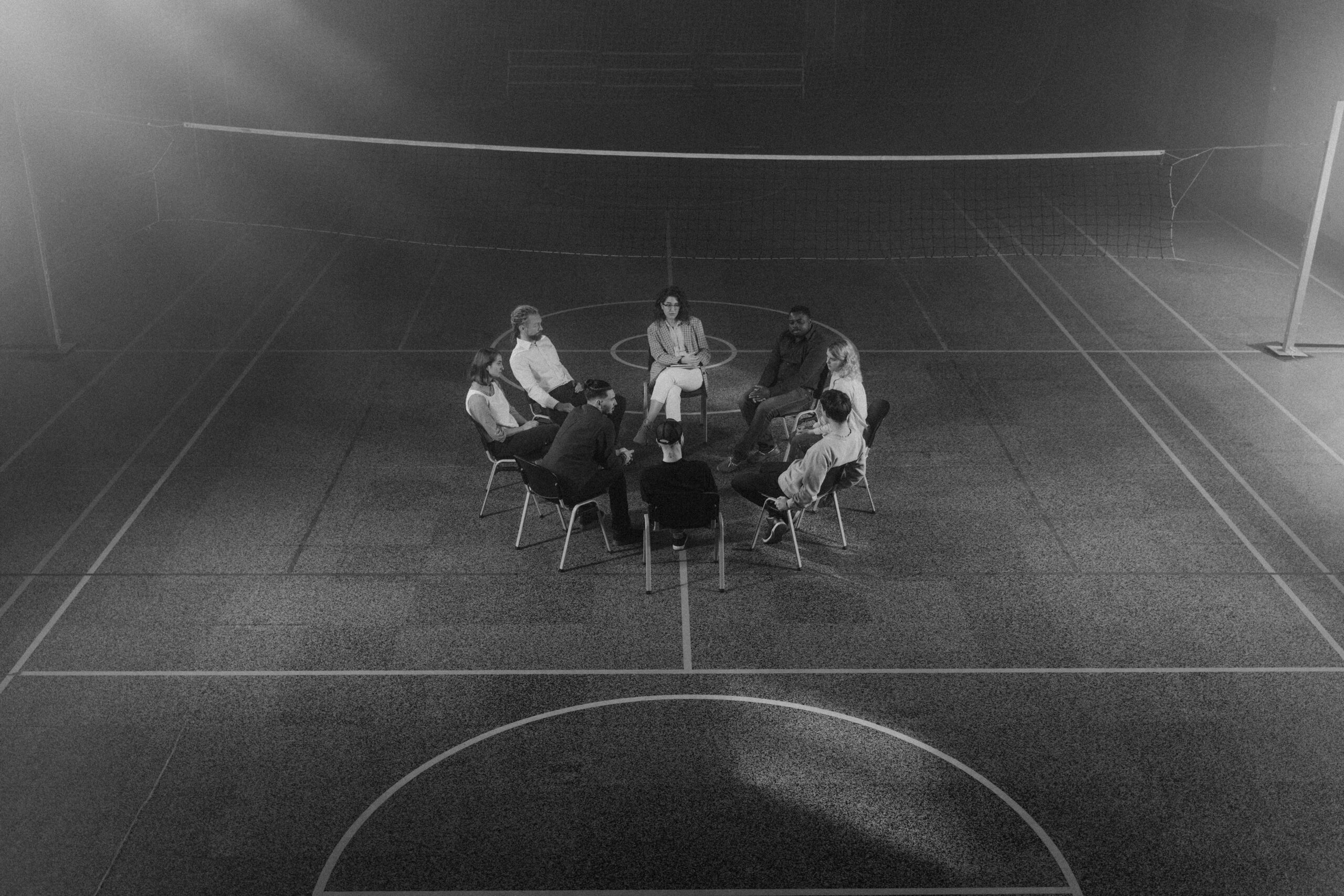
I often hear, “I went to an Alcoholics Anonymous meeting and it didn’t work.” Alcoholics Anonymous (AA) is not a single meeting, it’s a program.
Almost daily, I get a version of “AA doesn’t work for me” or “I went to a meeting and didn’t like it.”
I have gone to thousands of meetings since I got sober in 2006, people are often surprised that I still go to meetings. “Why do you still Have to go?” they ask. I continue to goto meetings because it works, that’s why.
AA is a program like no other, there is no website that guides you through, there is no users manual. You learn about AA by going to AA.
AA can be intimidating to a newcomer, people will come up and say hi, and they will offer help. An addicted person is not used to people actually taking an interest in them, and offering help with no ulterior motive – they are offering help because they know exactly what it is like to walk into a meeting for the first time.
How to Make AA Work
To successfully use AA to get sober, an addicted person (AP) should goto a lot of meetings, the adage in AA is 90 meetings in 90 days. If someone plans on going to a meeting daily, they will become a part of the group, they will make some new friends, and they will learn about the program of AA. Accountability is a very big part of recovery, making a recovery plan for the next day, agreeing to meet people at the meeting, and building a new circle of friends. You can only do that by going to the same meeting again and again.
You Have To Make The Time
“I don’t have time to go to a meeting a day” exclaims every person when confronted with this suggestion, and often exclaimed by the exact person that was drinking 4-5-6 hours a day. AA is about making sobriety the priority and valuing the change in life. People that dive into an intensity early, 90 meetings in 90 days, solve their drug problem once and for all. It’s a small investment of time to change the course of a life.
AA is a Safe Space to Leave Your Comfort Zone
People get the most out of meetings when they show up a little early, participate in the meeting by sharing, and have a cup of coffee with a fellow afterwards. Usually the person that exclaims, “AA didn’t work for me”, showed up late, sat in the back and didn’t say a word, and left early. That is not being an active participant, that is simply checking a box of attendance.
To learn about AA, it is recommended that an AP get a sponsor. A sponsor is a volunteer that is willing to help take someone through the 12 steps of AA. Being a sponsor is a big time commitment, they might offer to speak on the phone daily and get together once a week to “do step work”. Sponsors offer this help as they understand that doing service, giving back freely what was given to them is the cornerstone of the program.
AA Friends Want to See You Win
As a sponsor, I am eager to help people who want it. I give my time and energy to the person that seeks me out, asks for help, and respects that I am there to take them though AA. A sponsor is not a crisis manager. I don’t help people that don’t want to do the work of AA, I don’t help people that don’t stop drinking or using. That’s one key of AA – you have to stop drinking to work the program. As a sponsor I am generous to those that need and want to take my advice.
You Need A Sponsor
You haven’t experienced AA if you haven’t gone through the steps with a fellow member of AA. None of the people that tell me that AA didn’t work for them went through the steps, and all of the people that I have met that have gone through the steps tell me that it changed their lives.
You Don’t Have to be a ‘Church Person’
There are a lot of knee-jerk reactions to AA, summarized in the statement “it’s a religious program.” AA is a journey of self help and that is the spiritual nature of it. While the 12 steps do refer to a higher power, the virtues behind the steps are simple and agreeable.
AA Virtues
- HONESTY – Fairness and straightforwardness of conduct: adherence to the facts.
- HOPE – To expect with desire; something on which hopes are centered.
- FAITH – Complete confidence; belief and trust.
- COURAGE – Firmness of mind and will in the face of extreme difficulty; mental or moral strength to withstand fear.
- INTEGRITY – The quality or state of being complete or undivided; soundness.
- WILLINGNESS – Prompt to act or respond; accepted and done of choice or without reluctance.
- HUMILITY – Not proud or haughty; not arrogant or assertive; a clear and concise understanding of what we are, followed by a sincere desire to become what we can be.
- LOVE – Unselfish concern that freely accepts another in loyalty and seeks his good to hold dear.
- DISCIPLINE – Training that corrects, molds, or perfects the mental faculties or moral character; to bring under control; to train or develop by instruction.
- PATIENCE/PERSEVERANCE – Steadfast despite opposition or adversity; able or willing to bear; to persist in an understanding in spite of counter influences.
- AWARENESS – Alive and alert; vigilance in observing.
- SERVICE – A helpful act; contribution to the welfare of others; useful labor that does not produce a tangible commodity.
Do I Have to Call Myself an Alcoholic?
A lot of people don’t like to identify as an “alcoholic”, modern language today is “person with substance use disorder”. I identify myself as an alcoholic for the hour that I am in an AA meeting. Outside of an AA meeting I identify myself as many other things, father, businessman, interventionist, partner.
I have read a lot of books that I didn’t agree with a word or a sentence (most of my college classes), I didn’t throw away the entire course over a few words in the book. I didn’t like the concept of a capital G god, so I crossed out that reference in the big book and inserted my ridiculous concept of a higher power, Yogi the Bear. That’s right, I got sober with references to Yogi in my big book, each time I read it, I smiled at how ridiculous it was.
Not Liking AA Is Not an Excuse
The last and maybe most frustrating statement that I hear about AA is the most elementary, “I don’t like it”. There are a lot of times that I don’t want to go to AA, but I still go. I can’t value AA as a like or dislike. Of course I don’t want to go to AA, I want to lay on the couch and watch Netflix. I have to go to AA just like I have to do other things in my adult life. Almost every activity of my adult life is doing things that I don’t want to do.
AA Works
AA is amazing, it is always there, us old timers keep meetings going so that we can be there for the newcomer. If someone wants to make a change AA is a support system made for them.
It’s impossible to form an accurate opinion by going to only one meeting. However, going to AA consistently will reveal that the program works, when you work it. All of my clients who have seen long term recovery participated in AA at some point.
About Adam Banks
Adam Banks is a certified interventionist and the owner of Adam Banks Recovery. After receiving an MBA from the University of Chicago, Adam built a company acquired by United Health Care. His discipline and attention to detail comes from his former career as an airline pilot, holding an ATP, the FAA’s highest license.
Today, Adam is dedicated to helping others achieve long-term sobriety. His work has guided executives, pilots, and physicians on paths to recovery. Adam brings families together through a loving and inclusive approach. Adam has authored four books on addiction. His recent work, Navigating Recovery Ground School: 12 Lessons to Help Families Navigate Recovery, educates families on the entire intervention process. He also offers a free video course for families considering an intervention for a loved one.
Adam is available for alcohol and drug intervention services in New York, Long Island, the Hamptons as well as nationally and internationally.


